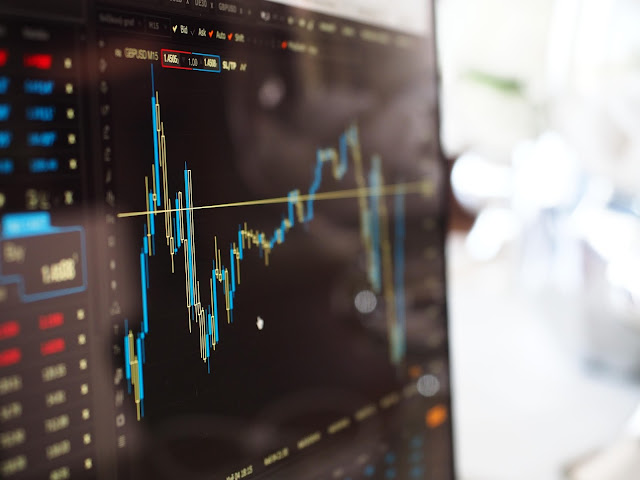A New Year .... and a New Crisis
ref :- "Ten Strategists on What U.S. - Iran Escalation Means
for Markets" , Bloomberg Markets
If ever anyone was in any doubt about just how fundamentally
global geopolitics can shape market movements, this morning has seen the
sharpest of reminders. In a move rubber-stamped by President Trump, the
hard-line (and much feared) Iranian general Qassem Soleimani was targeted and
killed by a US drone in Baghdad. Whatever one's position, this is a distinctly
worrying development and a very unwelcome way to start the year. We cannot know
at this early stage where this will lead, but Ayatollah Ali Khamenei's promise
of "severe retaliation" suggests that this may not be one of
those incidents that blow over in a brief if powerful storm of fiery rhetoric.
It seems invidious sometimes to look at events that could
conceivably have some very dark ramifications for our world purely through the
prism of how they might affect markets .... but then someone's got to do it, we
suppose. It could be argued that the action this morning has been exaggerated
in places by the lack of liquidity over the extended New Year holiday (oil
markets, for example) . Elsewhere, movements have been relatively muted,
perhaps because traders are as yet unsure how big a problem this may or may not
turn out to be (Swiss franc).
Whatever the case, everyone should be at least considering how
they might need to adjust their plans for the year ahead if this thing blows up
into something big. For example, could the balloon of the optimism engendered by
the imminent signing of a preliminary US - China trade deal -- that
has seen US stock markets finish 2019 at or near record highs -- be
punctured by the increased threat of a Middle East conflagration ? If such a
development severely interrupted oil supplies from the region, what effect
would that have on global growth and trade, especially if the Phase 1 trade
deal turns out to be more show than substance (as it well might) ?.
We were going to look at a piece in the FT today by
Katie Martin ( "Time for investors to rethink bonds" , Opinion), but
events like those today can make the timing of such articles seem a little
unfortunate even if one felt they made pretty good sense. With global
bond yields bouncing sharply from lows set in early September (with a
corresponding fall in bond prices), it's perfectly legitimate to consider
calling the 30-year bond rally definitely over and adjust one's portfolio
accordingly. Particularly so when confidence in avoiding recession is growing
and calls for stimulus are switching from the monetary method (which eases
rates) to the fiscal (which would entail more government spending and
borrowing, pushing bond yields higher and prices lower).
The logic behind such an argument remains absolutely intact, but
the rush into safe assets this morning sparked by the Baghdad incident has seen
bond yields fall by up to 10 basis points (and prices rise). As we say,
unfortunate timing and one might have to wait to see how this thing pans out
before putting 2020's masterplan into action. (Ms. Martin's piece is still well
worth a look, by the way).
Anyway, Bloomberg have got ten analysts to give their knee-jerk
reaction on how markets are / will be affected by today's news. Such
prognostications given so early when no one can know how badly this thing might
escalate always come with huge qualifications, but frankly, there are few
surprises ..... just think of the normal beneficiaries of a flight to safety,
and of those markets that would suffer from an interruption to global growth
and trade . A summary would include :
GOLD : the classic safe haven, had a look above $1,550 per oz.
this morning, challenging the 6 1/2 year high set in September.
EQUITIES : Unsurprisingly, US equity futures are lower on the
implications for trade. We shall see whether this development will finally put
a dampener on the seemingly irrepressible exuberance of US stocks.
SOVEREIGN BONDS : As we've heard, yields down / prices up in a
flight-to-quality
OIL : Brent Oil futures were up 4% this morning . Given the effect
that a major flare-up in the region would have on supply, such a reaction is
understandable but analysts warn that one should take care : oil marlets are
famously over-reactive and the proportion of world supply from outside the region is much greater than it once was.
CURRENCIES : the US dollar is in fact something of a safe haven
itself, which is why the Dollar Index is higher this morning .... but the US
unit is lower against everyone's favourite safe-haven currency, the Japanese
Yen. Crédit Agricole say the Yen could rise initially to 106 versus the dollar
(USD/JPY last at 108.12). Societe Generale say the key cross to watch might be
EUR / JPY. A break down through 120.00 would be significant (last at 120.40).
Slightly strangely, the other classic safe-haven currency : the Swiss Franc has yet to react.
Expect a risk-off atmosphere and threats to oil supplies to hurt oil-importing
currencies (particularly in Asia) like the Korean Won.
Who knows ? Perhaps in a week's time, as so often, we'll be
wondering what all the fuss was about. Somehow though, on this occasion, it doesn't
really feel that way .....



No comments